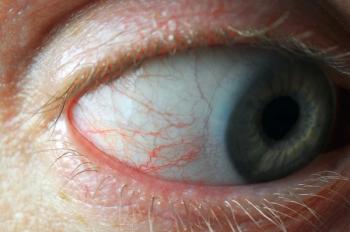
Of itching and watering and other things
This issue is our annual allergy issue. I’ve often joked that in the spring, a young man’s thoughts turns to love, while an old optometrist’s thoughts turns to ocular allergy. Treating our patients who present with seasonal allergic conjunctivitis is a large part of a primary-care optometric practice, especially this time of year.
This issue is our annual allergy issue. I’ve often joked that in the spring, a young man’s thoughts turns to love, while an old optometrist’s thoughts turns to ocular allergy. Treating our patients who present with seasonal allergic conjunctivitis is a large part of a primary-care optometric practice, especially this time of year. We know up to 40% of the global population is affected by
I authored two articles in this edition: one is
I have to admit that in the course of a normal, hectic clinic day, I am more focused on my patient’s chief complaint and alleviating his condition. Thankfully there are a tremendous number of topical medications and some over-the-counter oral medications that are very effective at alleviating symptoms in most of our patients with allergies. But as Dr. Brown points out, treating the signs and symptoms is only scratching the surface of our patient’s problem. True resolution requires the eyecare professional to delve deeper to identify the true cause of the patient’s reaction., especially in those chronic patients who present regularly and continually.
Like with many systemic conditions such as hypertension and diabetes, allergy presents optometrists with an opportunity to interact and co-manage their severe, chronic cases with other healthcare professionals, such as allergists like Dr. Brown. Allergy is yet another example of where optometrists can integrate with other healthcare professionals to provide contiguous, quality health care for our patients.ODT
Reference
1. Bielory BP, Perez VL, Bielory L. Treatment of seasonal allergic conjunctivitis with ophthalmic corticosteroids: in search of the perfect ocular corticosteroids in the treatment of allergic conjunctivitis. Curr Opin Allergy Clin Immunol. 2010 Oct;10(5):469–77.
Newsletter
Want more insights like this? Subscribe to Optometry Times and get clinical pearls and practice tips delivered straight to your inbox.















































